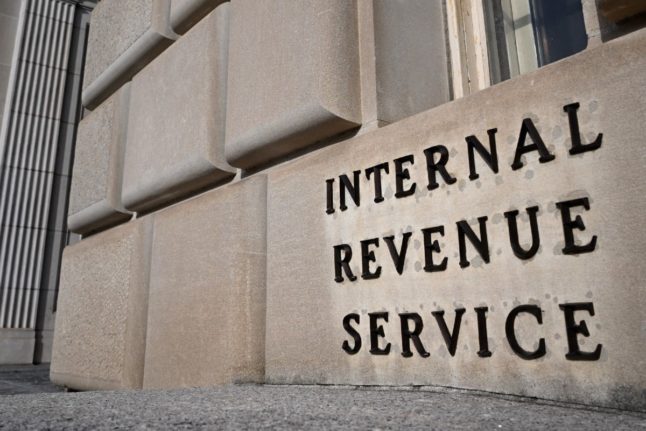As a US citizen living in Denmark, you have a lot of options when it comes to submitting your US tax returns.
The most financially savvy can identify all the forms they need and do it all themselves. You can use specialist software like TurboTax, H&R Block, TaxAct, or TaxSlayer. You can hire an accountant or lawyer in the US, in Denmark, or in both, or you can go all out and hire an international specialist like KPMG, PwC, or EY.
What do expats say?
Frank, an American expat, said in The Local’s survey that he had yet to find an accountant who properly understood both the US and Danish tax systems.
“Be careful to find a tax advisor who knows more than you could learn in an afternoon in a library,” he said. “I have not found that person yet.”
He also said that people with pensions and investments in the US would also need to hire a financial advisor who could tell them how to manage their investments to minimise tax
“You’ll pay more for financial advice. The people who prepare US returns for expats only prepare the returns. They do not advise you on how to live to reduce your taxes.”
One anonymous respondent, who spent more than 15,000 kroner on tax advice, said that they still believed it was worth it.
“I could go to jail if I got it wrong. So, yes,” they said. “But I did not get the money back in less taxes. Most tax professionals are only willing to work in their home system.It is very hard to find an international expert.”
The difficulty in finding an expert versed in both systems led another respondent to do their taxes themselves. “Most of them don’t seem to understand foreign tax laws for either US taxes or Danish taxes,” they grumbled.
READ ALSO: The five worst tax traps for Americans living in Denmark
What do the big accountancy firms say?
Elena Sevostyanova, a senior manager at KPMG in Copenhagen, said that the advantage of using a big multinational accountancy firm was that they had both US and Danish offices.
“I have like a small team in our tax office which specialises in US and Danish taxation, so I, myself am an Enrolled Agent [a tax practitioner authorised by the US Treasury department to represent clients to the IRS], and we have a US Certified Public Accountant sitting with us in our team. And we have a whole team sitting in the US in Washington, just doing research and qualifying how things should be properly taxed in the US, which small accounting firms and local US CPAs don’t have the possibility to get an overview on.”
Rasmus Kjærgaard Nielsen, Tax Director at PwC in Copenhagen, said that it could be useful to employ a tax advisor who is capable of requesting a binding ruling from the Danish tax authorities on how investments, assets, or pension holdings in the US should be treated under Danish law.
“We have the possibility of asking for a binding ruling from the tax authorities, which requires them to to make a decision or take a position on how something should be treated, and then there is at least certainty.”
Can you use your old US-based accountant to do your tax returns?
A lot of Americans who move to Denmark will continue to use the same US-based accountant to submit their tax returns, or even continue using programmes like TurboTax but Sevostyanova warned that there could be issues with doing this.
“This can work very well if you’re living in the US and just have income statement, dividends, and so on,” she said. “Where the problems come, and we see this with a lot of people who move to Denmark and continue to work with an accountant they have had in the US for many years, is that they are missing an understanding of the Danish system.”
She said she wasn’t even sure whether the TurboTax programme was able to generate the form people needed to fill in to report foreign tax credits, while US-based accountants rarely understood international tax.
“Many don’t understand even the simplest things, like how to read a Danish tax return, because it’s very different taxation principle in Denmark versus the US. How do you apply for foreign tax credits? How do you tax foreign pension plans and Danish pension plans: they just don’t have this knowledge.”
Might you also need to hire an investment advisory?
If you have a lot of investments in shares, bonds, mutual funds, ETFs in the US, either in a retirement account or a standard investment account, you may need to hire a separate investment advisor, as even the big multinational accountancy firms tend not to give investment advice.
“We don’t provide investment advice, it’s purely from a tax perspective,” Sevostyanova said. “So we always say to our clients: ‘we can advise on the tax side, but you should remember, there is an investment side to things that we can’t advise on. So it’s also important to seek advice from an investment manager, if you have investments in the US.
“We can say, of course, mutual funds are not a good idea from a tax perspective, but maybe from an investment perspective, there’s a really good opportunity if you have them.”
Do you need to hire a big multinational every year, or is once enough?
Sevostyanova said that some of her clients hired KPMG for their first tax return on arrival in Denmark and then either did it themselves, used a programme, or relied on their US CPA from then on.
“The first year is the most complex, right? You have to report correctly, you have to understand how things go into the tax return, so what a lot of clients d is say, ‘look, guys, I want you to prepare my Danish return. I want you to prepare my US return’. And then, going forward, they understand the logic behind it, how their foreign pension has to be reported, how to report mark-to-market investments and so on, and they just pick it up from then on themselves.”
Others, she said, decided that it worth paying to save on the time and the hassle.
“Some people don’t want to deal with their taxes at all. They don’t have time for it, so they just hire us for the ongoing engagement and they just review the standard returns.”



 Please whitelist us to continue reading.
Please whitelist us to continue reading.
Member comments